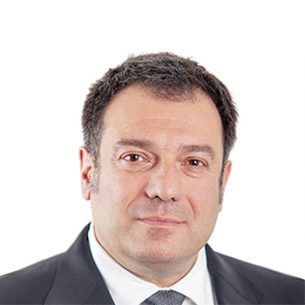Partner Bambos Tsiattalou examines the Economic Crime Act 2022 and its effectiveness in fighting financial crime in The Times.
Bambos’ article was published in The Times, 28 April 2022, and can be found here.
Following Russia’s invasion of Ukraine, the Economic Crime (Transparency and Enforcement) Act 2022 (the Act) was recently fast-tracked through parliament, where it received all party backing. The Act received Royal Assent on 15th March, although some parts have yet to come into force.
Ostensibly, the aim is twofold: tackling the issue of “dirty money” being used to purchase UK property and improving transparency about exactly who owns it. This will be achieved by a new register of overseas entities (ROE), requiring those who own land to register the identity of beneficial owners of these entities at Companies House and then to keep the register regularly updated. In addition, the Act makes provision about unexplained wealth orders (UWOs) and economic sanctions, as well as strengthening UK asset recovery powers.
In practice, it will also serve to intensify and accelerate an ever-wider range of UK sanctions against prominent allies of the Russian President, Vladimir Putin. According to the UK government, this will prevent wealthy Russians from using the City of London to launder money and hide its whereabouts.
In sponsoring the Bill as it passed through parliament, the Home Secretary Priti Patel called the Russian president a “gangster”, adding that “The UK must send a strong signal that it will not be a home for corruption.”
To that end, the Act contains specific measures targeted at oligarchs and companies which are associated with Putin. Most notably, it forces foreign owners of UK companies to declare and verify their identities with prison sentences of up to five years for those who fail to comply. In order to counter suspected criminal money invested in UK property, it also strengthens the UWO regime and makes it easier for UK authorities to sanction individuals who are already sanctioned by the US and the EU.
Although these measures may serve as a political crowd-pleaser, this one-size-fits-all legislation is, in fact, no more than a knee-jerk reaction to Russia’s invasion of Ukraine. It could be used against any wealthy Russians who are resident in the UK or who have assets here – potentially without adequate proof that they are closely linked to the Putin regime.
In this context, the legislation could be unfairly applied against some individuals since it does not take proper account of their actions, but discriminates instead on the basis of their nationality and wealth. It is rather like Daniil Medvedev, the world number 2 men’s tennis player. In common with all Russian players, who are subject to a blanket ban by the All England Club, he cannot participate at this year’s Wimbledon. In much the same way, the Act can be seen as a purely political move to court public opinion rather than creating good law.





